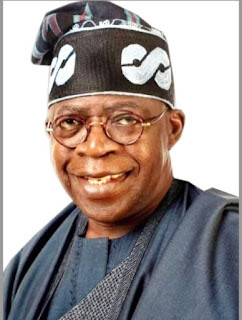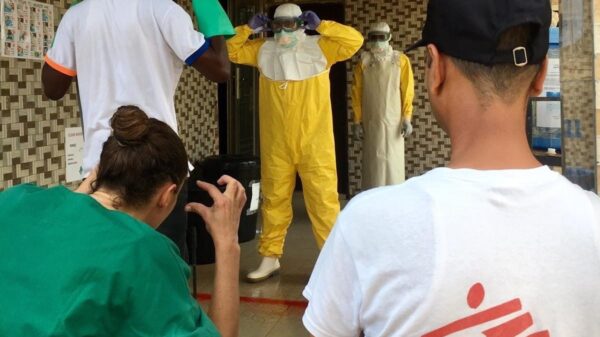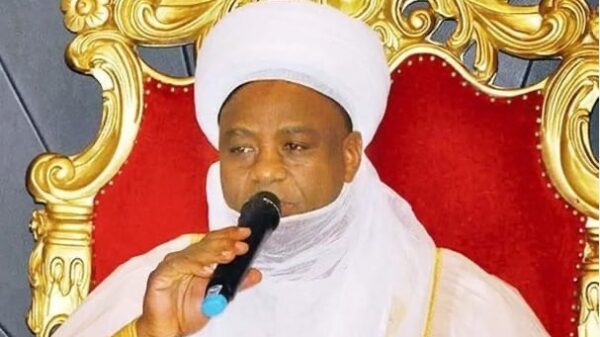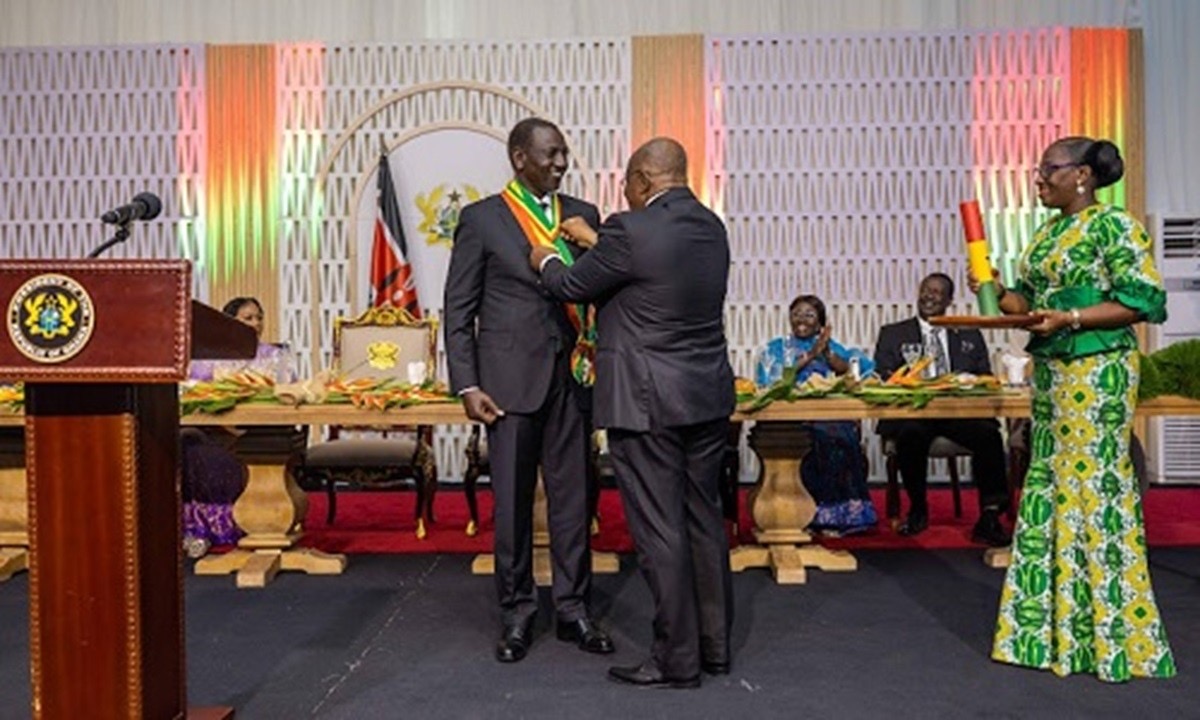With vast deposits of gemstones and prized agricultural products, two of Africa’s emerging economies – Ghana and Kenya – have resolved in partnership to boost and consolidate trade relations in desperate quest to lead Africa’s economic renaissance amidst global crisis.
The countries recently penned some bilateral trade agreements to cement their friendship which was consolidated during the recent three-day visit of Kenya’s strongman, President William Ruto, who Ghana’s President Nana Addo Dankwa Akufo-Addo described as “proactive pan-Africanist’’.
The series of Memorandum of Understandings (MoUs) signed by the countries were facilitated by Ghana Investment Promotion Centre, the Kenyan Investment Authority, the Association of Ghana Industries and the Kenya Association of Manufacturers.
These institutions did not act in a vacuum but with the understanding that such partnership will be mutually beneficial to be people considering their vast natural and agricultural resources which need to be harnessed and internationally shared.
Kenya is globally reputed for its tea, fresh flowers and tourism as key foreign-exchange earners so also its high revenue yielding Sisal, cotton, and fruits and vegetables and cash crops.
The country pride itself in key natural resources such as gold, iron, steel, titanium, gemstones, water, and wildlife while Ghana, formerly known as Gold Coast, is the second largest producer of gold in Africa.
The West African of 30 million people which recently discovered and started exploring crude oil, has other vast minerals, such as diamonds, manganese, limestone, bauxite, iron ore, clays and granite deposits.
Ghana is the second largest producer of cocoa in the world and the fourth largest producer of cassava and also produces maize, tomato, yams and rice among many other food crops
The bilateral trade cooperation, initiated at the instance of Ghana’s President Nana Addo Dankwa Akufo-Addo, came at a time that Ghana’s dwindling economy was being re-engineered and such cooperation is being worked out within the purview and objectives of the African Continental Free Trade Area (AfCFTA) Agreement.
Both countries have trade history which they now want to take to a higher level.
In October 2022, the Kenya flagged off the inaugural shipment of its tea from Nairobi to Ghana.
On 23rd September, 2023, Kenyan-made Chloride Exide batteries worth about KSh9.3 million landed in the Ghanaian Port of Tema, while Little Cab, a taxi-hailing service from Kenya, is now also operational in Ghana.
The Observatory of Economic Complexity (OEC) trade data analysis indicates that in 2022, Kenya made an export worth of US$9.53 million to Ghana – the main products covering vegetable fibres, tea and aluminium plating.
In 2022, OEC reports that Ghana made an export worth US$5.46 million to Kenya, with the main products covering coconut oil, cocoa powder, mushroom spawn and other live plants.
During the last 26 years, the exports of Ghana to Kenya have increased at an annualised rate of 18.2 per cent, while the exports of Kenya to Ghana have increased at an annualised rate of 14.2 per cent.
Kenya and Ghana have just signed seven agreements intended to expand opportunities for businesses and the private sector. The MoUs also include cooperation in science and technology, tourism, education, governance and defence.
“What is being done in this room today is critical for our continent and the future prosperity of our people,” the President Nana Akufo-Addo said, as he was joined by visiting President Ruto to witness the signing of the multiple pacts at a ceremony in Accra.
President Akufo-Addo said the business community had a responsibility to increase intra-African trade, leveraging the opportunities within AfCFTA, the continent’s financial resources and technological advancement.
“Your ability to seize the opportunities that will determine whether or not we go forward, and that will determine whether or not the eradication of poverty in our generation is made possible in Africa,” he emphasised.
The President assured that the leadership of the continent was focused on providing the requisite space and framework for African businesses to thrive.
“We want to see that growth because it is that growth that holds the key to our future,” he stated.
In the spirit of the renewed friendship and for constant reminder on the need to forge ahead with the implementation of the agreements, President Ruto was on March 4, 2024 awarded with Ghana’s highest award, “ Companion of the Order of the Star of the Volta Honour’’.
The award, according to President Akufo-Addo is an “example of a new generation of African leaders who have decided to insist on the application of principles of accountability and due process to all citizens no matter their status in society”.
“Under your leadership,” President Akufo-Addo said, “Kenya has become a shining example of a nation governed by the rule of law.”
“During my discussions with President Nana Akufo-Addo, we have noted that these agreements are significant in the evolution of our diplomatic ties, which stand on warm and cordial, dynamic and impactful historic collaboration,” President Ruto said.
President Ruto commended Ghana’s decision to remove visa requirements for all Africans by the end of the year, a move aimed at enhancing the continent’s integration.
“This commitment aligns with one of the goals of the African Continental Free Trade Area (AfCFTA) to create a single market in the continent and to drive economic growth, job creation and poverty eradication,” he said.
President Ruto pointed out that the free movement of people has contributed to growth in trade, investment and tourism between Kenya and Ghana.
This is after Kenya abolished visa requirements for visitors from all countries in January 2024 and that the two nations will use the opportunities provided by the Africa Continental Free Trade to further boost trade between Kenya and Ghana.
President Ruto welcomed the renewed partnership, saying their respective roles in deepening democratic governance in the East African and West African blocs, respectively, provided a stable environment for shared economic growth.
Africa, he said, had many endowed resources at its disposal that could be harnessed for accelerated socio-economic growth.
“The vibrant youth population, available land and natural resources put the continent in a strategic place to become an economic powerhouse, if the right policies were instituted,’’ President Ruto stated.
The two nations are determined to collaborate in tackling internal conflicts, wars, terrorism and violent extremism, aiming to safeguard peace and stability and thus promote regional development, he stressed.
He said: “It has become clear in our discussions that we have to redouble our efforts to silence the guns in Africa as a vital condition for economic growth.”
Concerned with the goings on at the continental level, the two leaders discussed intended institutional reforms at the African Union (AU) aimed at making the continental organisation fit-for-purpose and for the effective implementation of Agenda 2063.
This includes the need to restructure the African Union organs, conclude the division of labour between the AU Commission Organs, Specialised Agencies and Regional Economic Communities, as well as the need to streamline the agenda of the Pan-African Parliament to cover strategic issues.
As President Akufo-Addo commits to support Kenya’s candidature for the position of Chairperson of the African Union Commission 2025-2028., President Ruto also assured Ghana of Kenya’s support for the candidature of Ms Shirley Botchwey, Ghana’s Minister of Foreign Affairs and Regional Integration, for the position of Commonwealth Secretary-General for the period 2024-2029.
These leaders are labouring hard at a time that the global economy has been trying to cope with multiple shocks and economic uncertainties, Prof. Sam Smah, a retired Sociologist lecturer at the National Open University of Nigeria (NOUN), said.
The countries, he said, had been propelled by the impacts of
Covid-19 pandemic, political instability, climate change induced shocks and
international conflicts including that of Russia-Ukraine.
The global supply chains have been disrupted and with many other factors combined are causing surge in inflation, impacting more negatively on low-income and developing economies.
“What Kenya and Ghana have set out to do should be pushed to the letter to serve as an example for other African countries. Cross continental trade and exchanges of services and ideas can make a difference in the lives of African citizens who are currently going through hardship,’’ he said.
Experts report that despite the difficult times, both countries are on the path of recovery and progress.
According to Mr Samuel Kobina Annim, government statistician, Ghana’s economy grew 3.8% year-on-year in the fourth quarter, bringing full-year growth to 2.9% in 2023, as the country recovers from its worst economic crisis in a generation due to spiralling public debt.
The annual growth rate was higher than the 2.3% estimated by the International Monetary Fund in January, but was still significantly slower than 3.8% growth in 2022.
Annual growth was largely driven by services and agriculture, while the industry sector saw a small contraction, he said.
Unable to service much of its debt in 2022, the government in 2023 secured a $3 billion loan programme from the IMF, and in January reached a deal to restructure $5.4 billion of loans with its official creditors.
It is now pushing for a deal with holders of about $13 billion in international bonds, Mr Annim, said and that the growth was improving on a quarterly basis.
World Bank’s report on Dec. 20, 2023 that Kenya’s economic performance strengthened in 2023 despite continued challenges, and with real GDP growth accelerating from 4.8% in 2022 to an estimated 5% in 2023.
According to the 28th edition of Kenya Economic Update (KEU) adds that the improved growth performance is attributed to a strong rebound in agriculture sector in 2023 which had faced a persistent and severe drought as well as a moderate growth in the services sector.
Kenya’s recovery of agriculture has led to improvements in food supply and coupled with monetary policy tightening has helped reduce inflationary pressures.
In 2023, tourism continued to expand, credit to the private sector improved and manufacturing activity is expected to improve from the anticipated growth in agro-processing sector.
The economy however still faces several challenges to sustain its growth momentum such as heightened fiscal and external vulnerabilities manifested through high public debt, elevated cost of living, exchange rate pressures, global economic uncertainties, and tight global financial conditions.
“The government’s strategy to tap into concessional borrowing prudently helps reduce the accumulation of expensive debt,” said Keith Hansen, World Bank Country Director for Kenya.
According to the report, debt related vulnerabilities persist, and rising debt costs constrain government’s ability to address development challenges.
He said the country is however making progress and has reduced the primary deficit from 1.6% of GDP in FY2021/22 to 0.8% of GDP in FY2022/23, while the overall deficit decreased from 6.2% to 5.6% during the same period and is expected to reduce further to 5.4% in FY2023/24.
“Kenya will need to balance the short-term challenges of macroeconomic stability with the need to focus on policies for achieving longer-term growth that includes all in society,” said Naomi Mathenge, World Bank Senior Economist, said.
The KEU projects that the real GDP will grow between 4.5 – 5.2% in 2024 and would record improved investor confidence and credit to the private sector —helped by reduced domestic borrowing by the government—will strengthen private investment over the medium term.
Analysing these indices, Prof. Musa Alpha, an economic commentator based in Abuja, said the future of both countries is promising and that their drive for trade cooperation could further boost their economies.
“African countries should now start trading with each other and rely less on other continents. Africa must deliberately rely on the technology of each countries and seek to improve on them, if the continent is seriously looking to grow,’’ he said.
Meanwhile, Dr. Musalia Mudavadi, the Cabinet Secretary for Foreign and Diaspora Affairs, lauded the enduring bond between Kenya and Ghana and reaffirmed Kenya’s commitment to exploring potential avenues of shared interests to expand the relations further.
He said the several bilateral frameworks of cooperation signed are in in crucial areas of agriculture, information technology, trade, transport, tourism, technical vocational education, and energy.
Ghana’s Minister of Foreign Affairs and Regional integration, Ms. Shirley Ayorkor, expressed the country’s commitment to working closely with Kenya to solidify the long-standing relations.
She explained that the commercial exchanges have witnessed a remarkable acceptability, indicative of the robust growth trajectory in “our bilateral economic relations’’.




























